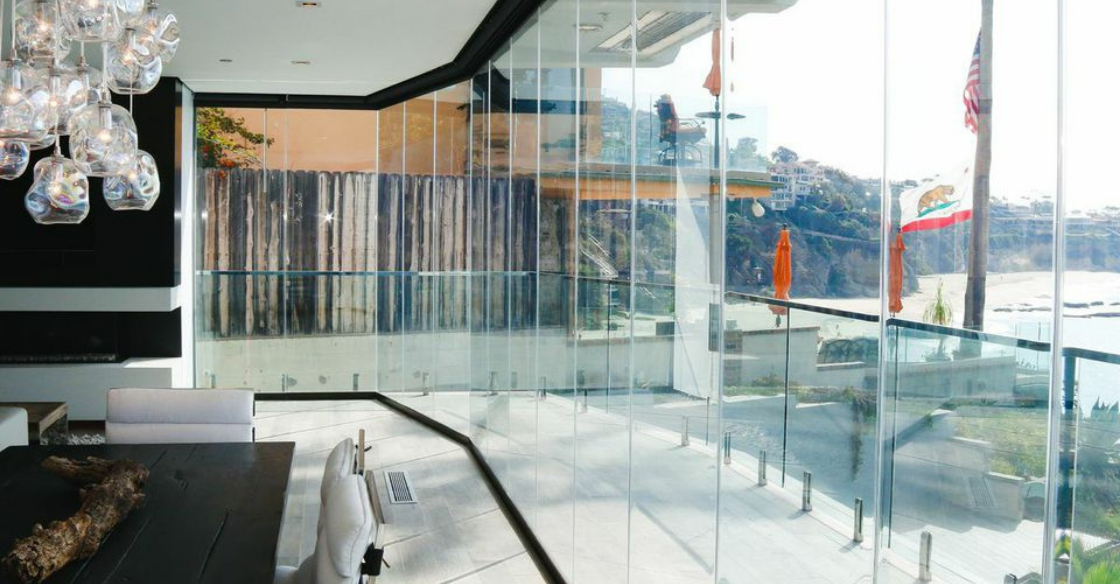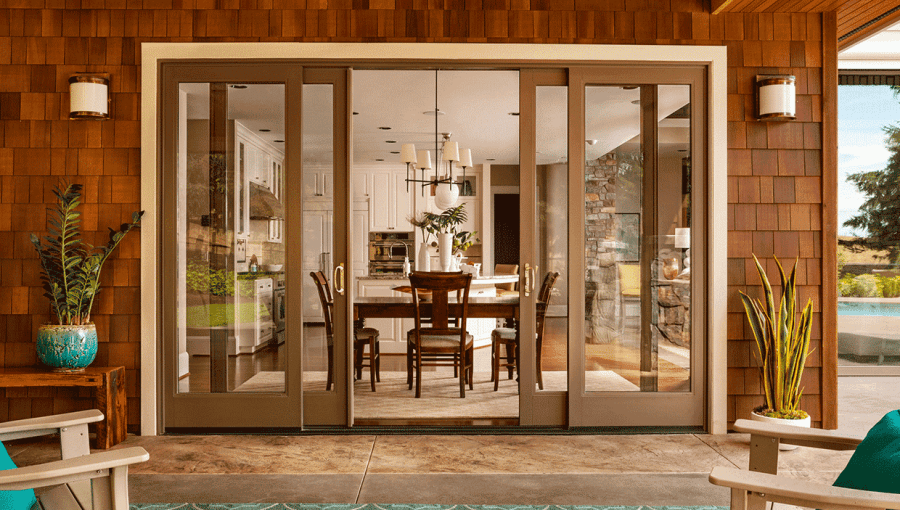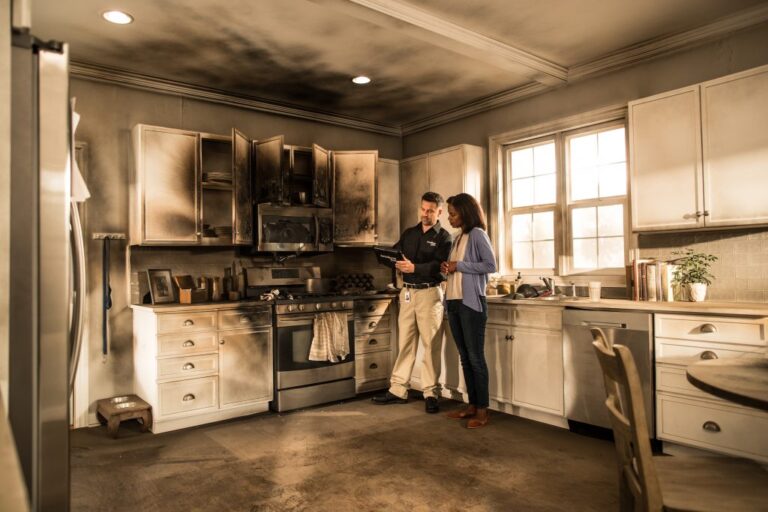How To Soundproof A Sliding Glass Door
Soundproofing a sliding glass door is possible when done correctly. Sliding glass doors can be a source of sound pollution in the home, allowing outside noise to enter and also allowing internal noise to escape. To soundproof a sliding glass door, you will need to purchase materials such as acoustic foam, soundproofing sealant, and weatherstripping. With these materials, you can reduce the amount of noise that can pass through the door. This will help keep your home’s interior noise levels low and make it more comfortable for family members and guests.
Assessing the Need for Soundproofing
When it comes to soundproofing a sliding glass door, the first step is to assess the need for soundproofing. The amount of soundproofing needed will depend on the type of noise that needs to be addressed and the environment in which the door is located. For example, if the door is located between two rooms that are often noisy, soundproofing will be essential for creating a peaceful atmosphere. On the other hand, if the door is located in a relatively quiet area, soundproofing may not be necessary. Additionally, if the soundproofing is meant to block out noise from outside, such as street noise, it is important to consider the sound levels and the type of noise that needs to be blocked. With the right assessment, homeowners can determine the best strategies for soundproofing their sliding glass doors.
Exploring Soundproofing Solutions
Sliding glass doors are a common feature in many homes, but they can also be a major source of noise. If you’re struggling to find a solution to reduce the amount of sound coming through your sliding glass door, you’re not alone. Fortunately, there are a variety of soundproofing solutions available to help keep the noise down.
One of the most common solutions is to install a soundproof window or door panel. These panels are typically made of heavy-duty insulation materials that absorb sound waves and keep them from entering the room. Additionally, some panels also feature acoustic glazing, which helps to reduce the amount of sound that can pass through the glass. This solution is relatively easy to install and can make a huge difference in the amount of sound that enters the room.
Another option is to add a weatherstripping seal to the sliding glass door. This will create a tight seal between the door and the frame, which can help to reduce the amount of sound that enters the room. Additionally, it can also help to reduce the amount of energy that is lost through the door.
Finally, you can also consider using a soundproof curtain or blind. These curtains or blinds are designed to absorb sound waves, which helps to reduce the amount of noise entering the room. Additionally, they can also add a decorative touch to the room and can be used to control the amount of light that enters the room.
No matter what solution you choose, soundproofing a sliding glass door is an effective way to reduce the amount of noise that enters the room. With the right solutions, you can create a more peaceful and comfortable environment in your home.
Selecting Materials for Soundproofing
One of the most important steps when soundproofing a sliding glass door is selecting the right materials. Taking the time to select noise-reducing materials that are best suited for this type of project will ensure that the job is done properly and effectively. With the right materials, it’s possible to create a soundproof environment in any room.
The first material to consider is sound-absorbing foam. This is a popular choice for soundproofing a sliding glass door because it’s easy to install and is effective at blocking out noise. It also helps to create a barrier between the inside of the room and the outside environment, which is especially important for homes in noisy areas. Additionally, sound-absorbing foam won’t damage the door or the surrounding walls, making it a safe choice.
The next material to consider is a soundproofing curtain. These curtains are made of thick, noise-blocking materials that are designed to keep out sound. They are also relatively easy to install and can be customized to fit any size sliding glass door. They are especially effective at blocking out low-frequency sound, which is often the most difficult to block out.
Finally, if you’re looking for a more permanent solution, consider installing an acoustic door seal. This is a seal that is made of a special acoustic foam that is designed to create a tight seal around the entire door. It’s a great option for blocking out noise from outside and is one of the most effective ways to soundproof a sliding glass door.
Choosing the right materials for soundproofing a sliding glass door can be a daunting task. However, with a little research and the right materials, it’s possible to create a soundproof environment in any room. Taking the time to select the best materials for the job will ensure that the project is successful and that you get the results you desire.
Preparing the Sliding Glass Door
Sliding glass doors are often found in residential and commercial properties, used to provide easy access to outdoor areas. Unfortunately, they can also be a source of noise, compromising the peace of the interior. Fortunately, there are strategies you can use to soundproof a sliding glass door. Preparing the door for soundproofing is the first step.
Begin by removing the door from its track and laying it flat on a clean, level surface. Then, remove any trim or hardware, such as handles or locks. If the door is double-glazed, the glass panels should be taken out and placed aside for later. You can then use a damp cloth to remove any dust or debris from the door. Once the door is clean, apply a soundproofing sealant to all four edges of the door frame and any other gaps or cracks. This will help reduce noise transfer from the outdoors. Finally, reattach the glass panels and hardware, and replace the door in its track. With these steps, you’ve successfully prepared your sliding glass door for soundproofing.

Credit: coverglassusa.com
Installing the Soundproofing Materials
Installing soundproofing materials around a sliding glass door can be a challenging task, but with the right materials and some patience, it can be done. To begin, you’ll need to measure the area around the door to determine how much material you’ll need to purchase. Once you have the measurements, you can purchase the appropriate type of soundproofing material, such as foam panels, rubber seals, or rubber mats.
When installing the material, be sure to apply it in a way that adheres to the doorframe securely. Foam panels should be cut to size and placed around the frame. Rubber seals should be placed around the edges of the door, and rubber mats should be placed along the bottom of the door. Then, use a caulking gun to seal the edges and ensure that the material is secured in place.
It’s also important to consider adding additional layers of soundproofing material. For example, soundproof curtains and acoustic blankets can be hung over the door, and soundproof gaskets can be used to seal any gaps around the doorframe.
By following these steps, you can effectively soundproof your sliding glass door, helping to reduce noise and create a more peaceful environment.
Sealing the Sliding Glass Door
Noise can be a nuisance that disrupts our peace. That’s why it’s important to keep it out of our homes, and that includes the sliding glass door. Soundproofing a sliding glass door can help make your home more peaceful and stress-free. The key is to seal off the door with the right materials and techniques.
One of the best ways to soundproof a sliding glass door is to seal the gaps around it. This can be done by using caulk and sealing strips, which can be found at any hardware store. The caulk should be applied around the frame of the door and allowed to dry before the sealing strips are applied. The strips should be placed over the edges of the door and should be tight enough to ensure an airtight seal.
Additionally, adding a curtain or blinds over the sliding glass door will help keep noise out. Curtains and blinds act as a barrier to absorb sound and dissipate it before it enters your home. Furthermore, you can use a noise-cancelling curtain or blind to further reduce noise.
By implementing the above methods, you can soundproof your sliding glass door and create a peaceful sanctuary in your home. With a few simple steps and materials, you can enjoy a quiet living space and a reduction in noise pollution.
Testing the Soundproofing
Once you have installed the soundproofing material, it is important to test the soundproofing of the sliding glass door. Testing the soundproofing can be done by using a sound meter or by simply listening for any unwanted noise coming from the door. It is also important to check the door for any leaks in the soundproofing material, as this can reduce the effectiveness of the soundproofing. If you find any leaks, seal them with caulk or weather stripping. Additionally, you should check the door for any gaps or cracks, as these can also allow sound to penetrate. Once the door is soundproofed, you will be able to enjoy a quieter environment.
Troubleshooting Soundproofing Issues
Sliding glass doors are a great way to let natural light and fresh air into your home. But if you live in a noisy area, they can be a source of unwanted noise. If you’re looking to soundproof your sliding glass door, there are several options to choose from. However, it’s important to understand that soundproofing isn’t a perfect science and that there may be some trial and error involved. In this article, we’ll explore some of the common soundproofing issues you may run into when soundproofing a sliding glass door and offer some solutions to help you get the best results.
One of the most common soundproofing issues with sliding glass doors is air leaks. Air leaks can occur around the edges of the door, or through any gaps in the frame. To remedy this issue, you should make sure that all gaps are properly sealed with caulk and that the door is properly insulated. Additionally, you can install weatherstripping around the door to prevent air from entering the room.
Another issue you may run into is vibration and noise from the door itself. To reduce this, you can install a rubber gasket between the door and the frame to absorb the sound. Additionally, you can add a layer of soundproofing foam to the door or even install a secondary door to act as a buffer.
Finally, you should be aware that soundproofing a sliding glass door isn’t an exact science and that you may need to experiment with different soundproofing techniques to get the best results. If you’re having trouble achieving the desired level of soundproofing, you may need to consult a professional for advice.
FAQs About the How To Soundproof A Sliding Glass Door
1. What materials do I need to soundproof my sliding glass door?
– You will need soundproofing materials such as weather stripping, insulation, acoustic curtains, or soundproof blankets.
2. How can I make sure my sliding glass door is properly soundproofed?
– You should ensure that all gaps around the door are properly sealed with weather stripping or insulation. Additionally, you should hang acoustic curtains or blankets over the door to absorb sound.
3. How long will my soundproofing materials last?
– The lifespan of soundproofing materials depends on the material used and the climate it is exposed to. Generally, weather stripping should be replaced every two to three years, insulation should be replaced every five to seven years, and acoustic curtains and blankets should be replaced every five to seven years.
Conclusion
Soundproofing a sliding glass door may seem like a daunting task, but it doesn’t have to be. There are many DIY options available, such as using acoustic curtains, sealing the gaps, and adding weatherstripping. However, if you’re looking for a more permanent solution, some soundproofing films and panels can be installed directly onto the glass. While these solutions may cost more, they provide a more effective soundproofing solution that will last for years. Ultimately, the best option for soundproofing a sliding glass door will depend on your budget and desired results.






